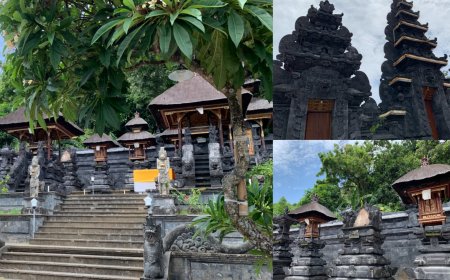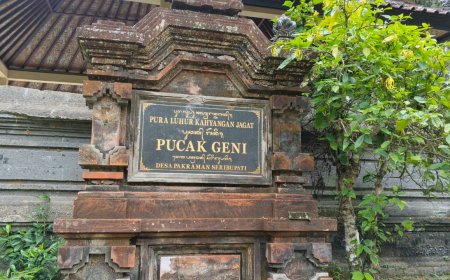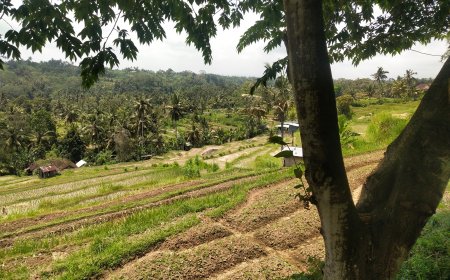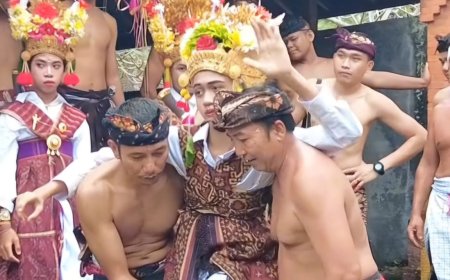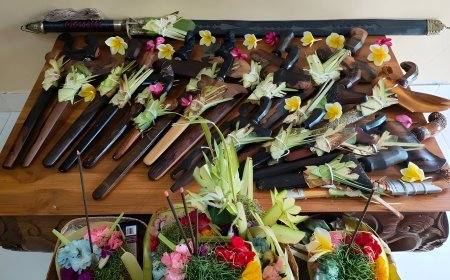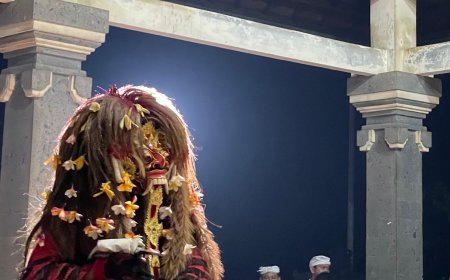Ngerebeg: 13th Century Tradition, Glorifying Sarwa Prani to Maintain Natural Balance
The Ngerebeg tradition in Tegallalang is an amazing example of the richness of Balinese culture. This is not only an event, but also an experience that teaches the meaning of cooperation, togetherness, and balance between humans and nature. With the hard work of the Tegallalang people and support from the government and tourism, this tradition will continue to develop and enrich the lives of the Balinese people and those who visit this island.
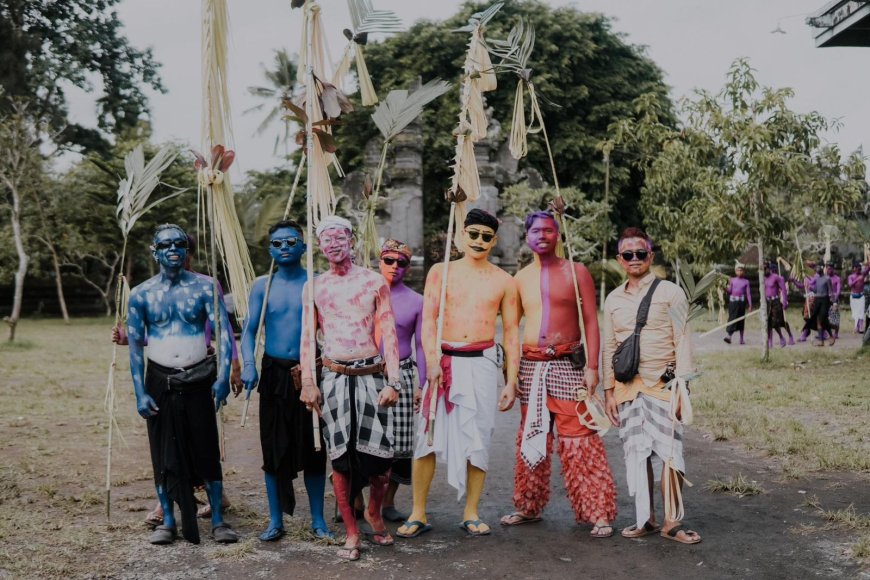
Ngerebeg Tradition Tegallalang Village (Photo Source: Personal Collection)
Tegallalang, a village located in Gianyar Regency, Bali, is a place where the rich Balinese culture and traditions develop beautifully. One of the most interesting and meaningful cultural events in Tegallalang is the Ngerebeg tradition. This tradition is one of the highlights of community life in Tegallalang village. The implementation of the Ngerebeg tradition is thought to have existed since the 13th century in accordance with the arrival of Tjokorda Ketut Segara to Tegallalang village, therefore this tradition is not dared to be eliminated or even erased by the local community.
Ngerebeg comes from the Kawi language which means expelling or placing wong samar (spiritual beings). Wong samar was not expelled, but was given a place in the form of a shrine. The local people believe that the manifestation of Ida Sang Hyang Widhi who resides or melinggih at Duur Bingin Temple has followers in the form of wong samar. Wong samar is believed to live upstream of the river west of the temple. When carrying out ceremonies at the temple, the spiritual beings also have the desire to ngayah or help carry out the ceremonial procession. So Ngerebeg is a tradition that originates from the Hindu-Balinese era, which is still very strong in the lives of Balinese people. This tradition was originally carried out to ward off evil creatures and bring happiness to the village. Historically, Ngerebeg in Tegallalang was first started by a local priest who wanted to protect the village from the threat of evil spirits and natural disasters.
Ngerebeg has several deep meanings. One of them is to maintain natural harmony and expel evil creatures that might disturb society. Apart from that, this tradition also teaches values such as cooperation, solidarity and social care. Through the preparation and implementation of Ngerebeg, the Tegallalang community learned to work together and felt a strong sense of togetherness.
Ngerebeg is a series of ceremonies at Duur Bingin Temple, Tegallalang village. Ceremonies at Duur Bingin Temple takes place the day after Pegatwakan day or Thursday (wraspati), Umanis, Wuku Pahang. The day before ceremony, namely Pegatwakan day, the Tegallalang people will carry out the Ngerebeg tradition. This Ngerebeg tradition is routinely held by 7 traditional villages in Pakraman Tegallalang village, Tegallalang sub-district, Gianyar Bali, because the people believe that if this tradition is not held, bad things will happen to the residents of their village.
On the day of the event, the village community gathered at Duur Bingin Temple to pray together. After that, the carefully prepared statues were carried around the village by the strong young men. They play gamelan, a traditional Balinese musical instrument, while accompanying these statues. During their journey, they also brought various types of agricultural products and food as a sign of gratitude to the gods.
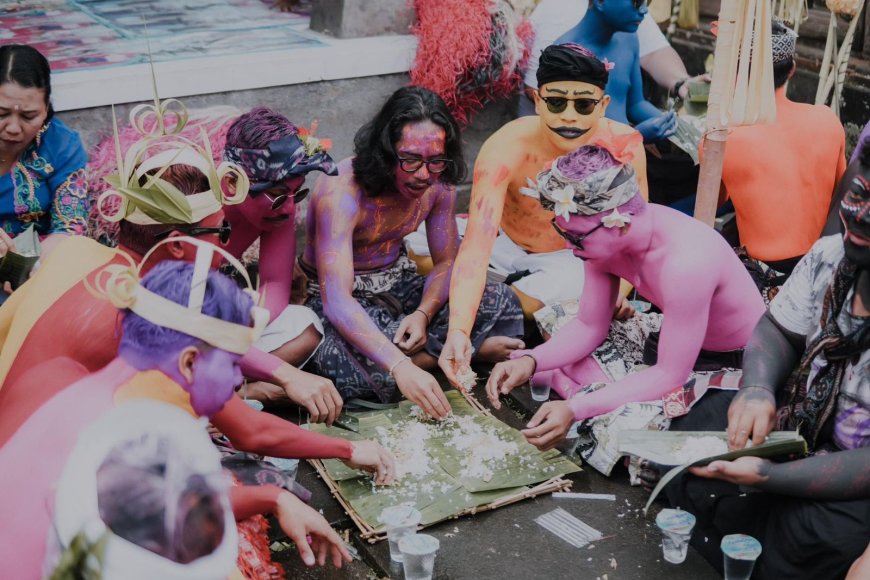
Eat Together or Megibung Pica Ageng (Photo Source: Personal Collection)
This tradition only involves boys, including those who are adults as participants. Their bodies and faces are made up using various colors, including trinkets to make them look scary. Apart from scary makeup and decorations, participants in the Ngerebeg tradition also have to bring a penjor made from palm trees. This penjor is symbolized as a weapon so that the vague people do not disturb the lives of the people of Tegallalang village.
The scary faces of the participants in the Ngerebeg tradition are symbols or forms of wong samar (spiritual creatures) who usually like to disturb children. This tradition, which is also a ritual carried out by residents of the Pakraman Tegallalang village, actually aims to provide a place for the vague people. Make offerings so that you can live side by side with humans, not disturb each other and so that you can protect Tegallalang village.
There are a number of unique incidents that have occurred in the Ngerebeg tradition, once a resident disturbed a child who was participating in the Ngerebeg tradition, the penjor that the child was carrying was taken by the resident, not long after that the person had an accident. There was also an incident where a boy wanted to be a participant in this Ngerebeg tradition, because he was still a toddler, the child's parents did not allow him to take part, and in the end the child did not participate because he was not allowed to. However, several days after the Ngerebeg tradition was completed, it was reported that one of the child's parents fell into the burning straw which resulted in them getting burns. Therefore, the village community believes that they should not hinder their children if they want to become fathers or participants in this tradition. This also includes and during the Ngerebeg procession, the vague people also join them, so that residents are prohibited from disturbing the ongoing tradition. So this procession is very sacred, even though their appearance is made scary with minimal make-up, the philosophical meaning is very high, how humans can maintain harmony with the creatures around them, including the wong samar (spiritual creatures).
One of the most interesting moments in Ngerebeg is the traditional Balinese dance performance. The dancers wear beautiful costumes and depict Hindu-Balinese mythological stories. This is a time where Balinese culture and art truly shines.
During the Ngerebeg event, the entire village community felt united. They celebrate togetherness and strengthen their social bonds. Apart from that, spiritually, this tradition teaches the importance of maintaining balance between humans and nature, and asking for protection from the gods. Even though Ngerebeg is an ancient tradition that has existed for centuries, the Tegallalang people are still very committed to maintaining its continuity. They know that these traditions are an important part of their identity and are a valuable cultural heritage.
However, this tradition also faces several challenges in the modern era. Social and economic changes have made it difficult for communities to devote the time and resources necessary to organize Ngerebeg. Apart from that, the influence of globalization and tourism has brought changes in the way this event is held. To maintain the continuity of this tradition, several efforts have been made. The Tegallalang community has worked together with the government and cultural organizations to support and promote Ngerebeg. They also seek to attract tourists who are interested in observing and respectfully appreciating these traditions. The Tegallalang people are very aware of the importance of preserving their cultural heritage. They want Ngerebeg to remain an integral part of their lives, as well as an attractive cultural attraction for tourists who come to Bali. With their cooperation and commitment, they hope that the Ngerebeg tradition will remain alive and thriving for generations to come.
The Ngerebeg tradition in Tegallalang is an amazing example of the richness of Balinese culture. This is not only an event, but also an experience that teaches the meaning of cooperation, togetherness, and balance between humans and nature. With the hard work of the Tegallalang people and support from the government and tourism, this tradition will continue to develop and enrich the lives of the Balinese people and those who visit this island.



